As part of the newly signed Trinity House Agreement between the UK and Germany, German aircraft will soon begin operating from RAF Lossiemouth in Scotland, further enhancing European security and cooperation in the North Atlantic.
The deployment of German P-8 Poseidon aircraft to Scotland marks a key element of the agreement, strengthening NATO’s ability to monitor and protect the North Atlantic region.
The German P-8 Poseidons will periodically operate out of RAF Lossiemouth, which already serves as a key base for the UK’s own maritime patrol aircraft. This collaboration will bolster surveillance capabilities in the North Atlantic, an area of increasing strategic importance as Russia continues to pose a threat to European security.
This cooperation is part of a broader initiative within the Trinity House Agreement that focuses on protecting critical underwater infrastructure, such as undersea cables, and improving detection of adversary activities in the region. The partnership aims to address emerging threats and ensure the security of vital sea lanes and communication lines that are crucial for both military and civilian operations.
Defence Secretary John Healey described the agreement as a “milestone moment” in UK-Germany defence relations, highlighting the deployment of German aircraft as a key component in strengthening NATO’s operational capabilities. The presence of German aircraft in Scotland reflects a growing partnership between the two nations, aimed at enhancing interoperability and joint defence efforts across all domains.
German Defence Minister Boris Pistorius spoke of the importance of joint operations in strengthening NATO’s European pillar, saying, “We can only strengthen our ability to act together. This is why our cooperation projects are open to other partners.” The deployment of German aircraft to RAF Lossiemouth exemplifies this spirit of cooperation, as the two nations work together to address shared security challenges.
With the deployment set to begin soon, the Trinity House Agreement marks a new chapter in UK-German defence cooperation, reinforcing the two nations’ commitment to European security and joint efforts to deter potential adversaries.


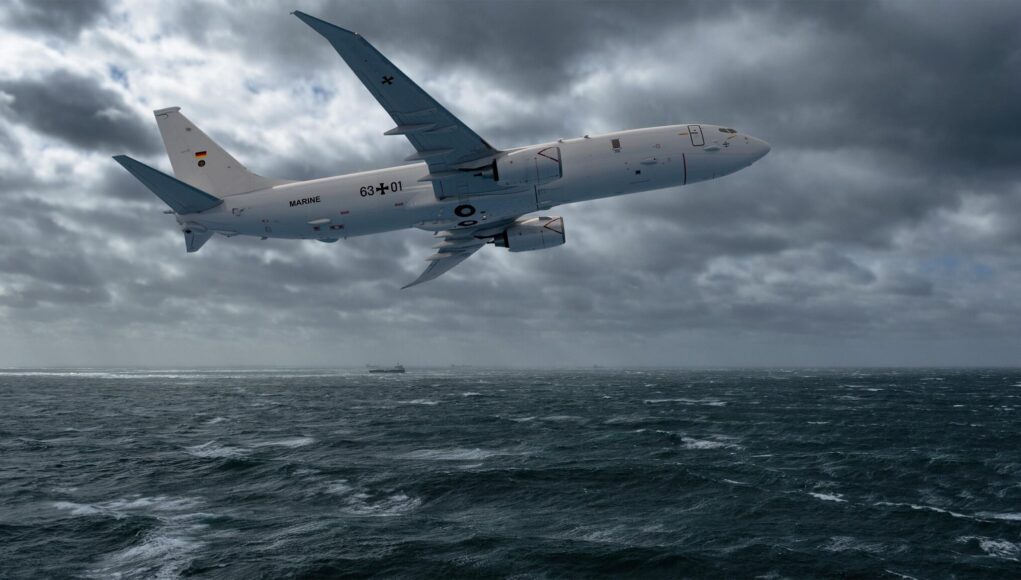
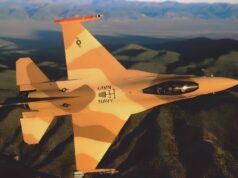


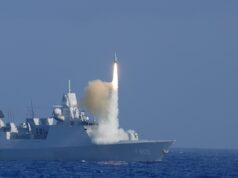

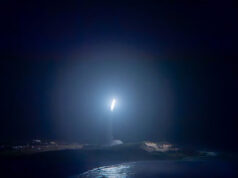
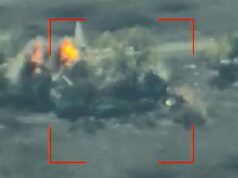
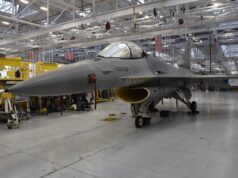
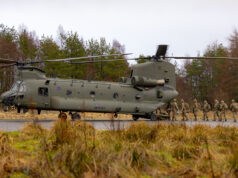


Total embarrassment, broke Britain having to get another country to do its work.
That’s not what this is. The UK has its own P8 Poseidons that perform this work regularly. This is just another combined NATO deployment. Nobody starts crying out that we are reliant on the Americans to defend our airspace when RAF Lakenheath is being used by the USAF.
This is what it is, if UK had enough ships and ASW air assets it would not be necessary.
Very true ,didn’t need help back in the Nimrod day’s
It has always been a NATO task to close the gap! At no time has it just been our job.
Since a certain date perhaps, What about 1941?
Mmm have we got Sunderland’s,liberators,Catalina’s to do the job now?
I believe the rest of Europe was occupied by a certain persons forces if memory serves!
Who thinks 9 RAF Poseidon are enough?
There were more than 40 Nimrod MR1 ASW, plus many more frigates and ASW helicopters
Hi Alex, to be objective the RAF had 36 ASW Nimrods in the 80s. 3 to 4 of these were dedicated to training (now days all sim based). However the basic arithmetic is self evident – 9 does not equal 32!
Perhaps a fleet of 12 is reasonable compromise?
Jim was being sarcastic.
Not a bad arrangement. With Norway’s P8’s it gives increased coverage over a critical strategic area. Do not forget we will see increased Chicom activity over the next few years, so deterrence is a key.
Also using the state of the art assets that actually exist and are crewed with weapons to the best of our ability.
Which means basing in the best possible places to reduce flying hours in transit to increase flying hours in useful places.
Lets be thankful that UK + Germany + Norway have a decent coordinated P8 fleet.
And be even more thankful that we have 8 No T26 on order and that the Norwegians are thinking of ordering 5 ASW [primary role] frigates.
And then be even more thankful that the UK’s better torps are being integrated onto P8.
That is a very serious network of planes and weapons. Yes, I wish UK had 13 T26, as per the original GCS plan before anyone shouts fantasy fleets, only 5 were not supposed to have tails. But this aspect of UK operations is being recapitalised just in time.
Once Canada receives its 14 P8s then the North Atlantic will have a lot of coverage. The CP-140s are a great plane but the P8s are a great upgrade for the RCAF.
16 P8s are being purchased.
You do realise Canada has a Pacific and northern coast as well.
And Arctic. I am fully aware. Hence the 16 on order.
An interesting point: Germany’s P8’s are operated by their Marineflieger (Fleet Air Arm) while we’ve decided that the RAF should operate ours.
The RAF have always operated our long range marine patrol aircraft since the days of Coastal Command in WW2 and probably before.
No argument against that here, (before that yes because the entire FAA was folded into the RAF pre WW2). But the RN maintained, probably correctly, that the RAF continuously deprioritised MPA during the war
Hi Dern, how are you? Part of the problem in ww2 was pressure from the PM and RAF leadership to bolster strategic bombing over Germany, Politicly good for Churchill ( and probably the UKs moral at the time) – taking the war to the Hun and revenge for the Blitz etc
I imagine the other issue was the lack of long range air asset to effectively cover the Atlantic gap – until the advent of the B24.
Hey Klonkie, im okay. I mean I’m in general highly skeptical of the strategic bombing campaign on a number of reasons.
But if the u boat threat was so great diverting funds from coastal command to terror bombing was an error.
Sorry for the late reply. I do agree with you on the bombing campaign- it has never sat well with me.
Same, it’s always smacked of be careful when fighting monsters lest you become one. Personally I still fail to see a material difference between bayoneting women and children, and dropping firebombs on them.
Or a massively beneficial agreement between two very closely aligned and like minded countries that improves the security of both. The future is closer cooperation with our neighbours and allies, the concept of any country, beyond the two largest superpowers, acting alone except on the smallest of tasks is pure nostalgic myth. The UK is increasingly the European strategic reserve, bringing specialist capabilities and high end kit and useful bases to the spectrum of European defence.
Or a diversion of German platforms from the Baltic to cover for our inadequate purchase.
An argument based on two false premises. One that Germany is the junior partner here willing to do our bidding. Germany would no more do this if it wasn’t in their best interest than we would the other way around. Secondly that the Baltic is the only maritime area of interest to Germany. Ignoring that their North Sea coast is equally as long as their Baltic coast and if you look at a map Lossie actually is a fantastic base for patrolling the entrance to the Baltic anyway…
The German P8s are likely to be based at Nordholz (Navy air station) North of Bremen, an even better location to patrol the entrance/exit to the Baltic /North Sea from.
Nato MPA have always been able to utilise the many bases(Lossie/Nordholz/Keflavik etc)around this region for patrolling the NA, regardless of any formal agreements!
The bottom line is that we don’t have enough for sustained maritime ops in the NA and high North it’s that simple. Of the 9 airframe we have, I would imagine that no more than 4 are available at any given moment for use. Perhaps someone like @RBlay could expand more accurately on that?
Hello Deep 32 -from my limited experience in ex Air force operations 9 aircraft appears to be inadequate. Generally, serviceability rates were around 65 to 75% on the flight line. Fine in peace time ops, but the rubber hits the road when there is a surge in the ops tempo. Rule of thumb – if it can break down it will.
A caveat however, my commentary is from the 80’s. I do not know if serviceability rates of a P8 are higher than those of the Nimrod.
For Sure, Rob B would have insightful commentary on this.
Hi mate, totally agree with you, to get them all on the flight line for sustained ops is a big undertaking, then not sure how long we could keep that tempo up if required? Then of course what happens to availability after such an event?
Not to mention a distinct lack of any form of attritional reserve!!
Whether or not we care to admit it, we are already engaged in a war with mad Vlad – cyber/disinformation etc we just need those jokers who allegedly run this country to wake up to the fact, grow a pair, put on their big boy/girl pants and start acting accordingly.
Yep well said Mate, completely agree with you.
Spot on re your comments Mate ! 👍
Indeed. As we haven’t bought enough P8s or radars, we are getting Germany to give us a hand. Occassional visitors? I think it will be far more regular than that.
Coalition killed Nimrod/Harrier/Ark Royal and left us paying for cover to NATO allies. Now the personnel numbers are soo low, which undocumented refugees will be filling the gaps?
So, not collaboration with an Ally?
It would be interesting to know who will be undertaking support for these aircraft, will it be RAF ground personnel or will we have some friendly Deutsch airmen? I have a strong feeling it will be the former.
It will be a German deployment, so German engineers and crews.
When we deploy equipment overseas from whatever Service, engineering support goes too.
I expect they will refuel at the RAF base though!
These kinds of operations have been happening for decades within NATO so not really news. Would be better news to hear the Dutch are going tor regain their Maritime air fleet they dropped some time past which was a real loss.
Yes, it would be good if they bought some P8 too.
send the kit where the action may take place. we send non maritime airborne surveillance to Ukraine border good stuff.
But the action is in the GIUK gap, we monitor Russian subs that try to access the Atlantic, this is why Lossiemouth is getting a huge amount of investment and why the subs are also based at Faslane. Our P8’s also go to the Barents sea to monitor Russian assets closer to their base, you can track them on flightradar. The Americans seem to be the ones patrolling the Black Sea.
the article says north atlantic region, we probably don’t have the security clearance to know more.
An admission we dont have enough…
Will they be allowed to release weapons ?
So Sweden and Poland take the Baltic and Germany re-inforces the North Sea and Atlantic – what a brilliant piece of Defence diplomacy and a maturing of relationships.
This is what happens when you try to cover a threat with eight aircraft which used to require thirty five.
A common sense idea for a change. With Norway involved already Lossiemouth will be a very serious Aew/ASW centre fo the whole N.E. Atlantic.
It would be a good idea if RAF Aldergrove was reintroduced as this base is even nearer the western approaches and helps the P8 range. Already see more USAF C17 in there but no RAF aircraft
Were the Nimrods regularly based in Aldergrove? How much investment would be needed for them to base out of, both in support elements and security?
No Nimrods were based there. Only Shaclktons at nearby Ballykelly which was closed into care and maintenance since. Security at Aldergrove is good with 2 large hangers not in use and ground handling is available
Effectively an admission that 9 P8 Poseidon aircraft was never enough aircraft to cover UK seas and oceans.
Minimum a squadron of 12 at Lossie and 12 at St Mawgan for the SW Approaches
Something similar should be arranged between Portugal and it’s NATO allies. The Portuguese Navy regularly reports it’s chasing Russian vessels inside Portugal territorial waters.
I find it increasingly strange that anyone would come on here to try and justify the totally inadequate size of the U.K. armed forces. Collaboration with Allies is great but has been pretty continuously exercised since the inauguration of NATO so no real change. However, the lack of understanding and effort required to protect an island trading nation such as the U.K. is staggering.
In terms of priorities for the U.K. maritime patrol aircraft, ASW and mine warfare capabilities along with air defence need to be at the top of our conventional requirements. If that means because of budget constraints other capabilities need to go then that conversation needs to be had.
Of course protection of SLOC is not as exciting as some other aspects of defence but just read some history and you can find the reminders from our past that it was and remains a top priority for the U.K.
We pretend otherwise at our peril.
You have to have some sympathy for the German crews posted to Lossie
It’s very embarrassing that the UK doesn’t have enough MPA’s to handle it’s NATO and national responsibilities in the GIUK gap, North Sea, Irish Sea, NE Atlantic and UK EEZ waters – on top of occasional out of area commitments such as the Eastern Med. But we are where we are and can only extend thanks to the USA, Norway, France and now Germany for helping to fill the gap. Ideally the SDR2025 will recommend ordering at least another 3 P-8A’s before the production line closes – that was 2025 but is now 2026 thanks to a rush of “now or never” orders.
I would guess that a B737 700/800′ derivative would have an excellent serviceability rate. Its not just airframes, you need sufficient crews’ to maintain sortie rates. Do we have them?
I see a lot of posts about the lack of RAF numbers and that is why we need the German Naval Air Wing 3 with their P8s in Lossie. Whilst I agree that the RAF could and should have a few more of these aircraft or up to 16 Sea Guardians I do wonder if the real reason is numbers. First joint NATO operations and shared bases is very normal. Second reason is operational experiance. There is possibly one reason that has not been mentioned. Is the German airbase fitted out for the P8. Looking at sat photos of the base at Nordholz it looks like it will need some major investment and several years of work before the base could operate and maintain 8 P8s.
So is it possible that German needs somwhere to park and base a flight of P8s whilst their base is getting rebuilt to accept them?
The first German P8s don’t arrive until ‘Spring 25’ when the first one is due to be delivered. Nothing wrong with starting to invest in any required infrastructure before then surely? Not sure what the delivery schedule for their P8s is either, but doubt very much that they be getting all 8 in the year.
They have aircraft hangers at Nordholz, perhaps as you point out not all the technical gubbins required for them, but, don’t believe that parking them their is an issue.
A German P8 took off from Lossiemouth last night and patrolled the North Atlantic. That was quick!
If the Germans haven’t got them yet then they are coming to Lossie to help get their crews up to IOC. Lossie becomes the eastern Atlantic centre of excellence on the P8. The US bases theirs out of Lossie also by the way. The RAF’s 9 is not enough, of course, nobody could doubt that, but there is no northern situation where UK would fight anything on its own. Apart from another cod war with Iceland, but we could always shop at Farmfresh,